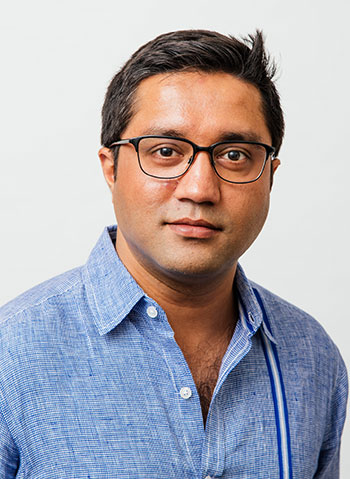Data Science and Smart Cities
Those applying data science analytics to their research, such as Gourab Ghoshal from the Department of Physics, are experiencing new levels of understanding and contributing new knowledge to their fields.
 Gourab Ghoshal, a new faculty member in the physics department, is interested in complex systems. He looks at the dynamic behavior of neighborhoods, the human body, or the Internet, for example, to understand how its various parts affect the whole system. Currently, Ghoshal is investigating “smart cities,” which use data to inform urban development in low-cost ways that maximize the productivity and quality of life for its residents. Ghoshal is starting to look at Bogota, Columbia; Lisbon, Peru; and parts of Boston, Mass.
Gourab Ghoshal, a new faculty member in the physics department, is interested in complex systems. He looks at the dynamic behavior of neighborhoods, the human body, or the Internet, for example, to understand how its various parts affect the whole system. Currently, Ghoshal is investigating “smart cities,” which use data to inform urban development in low-cost ways that maximize the productivity and quality of life for its residents. Ghoshal is starting to look at Bogota, Columbia; Lisbon, Peru; and parts of Boston, Mass.
“This work is driven by data,” says Ghoshal. “It’s about collecting and refining from all of a city’s parts, including Census, economic development, pedestrian traffic, consumer behavior, crime rate information, and much more. We can then build models and test different hypothesis to understand how all of these components relate to each other and to see how to improve connections between them.”
Collaboration is also important. “I’m a physicist and I work on cities but how can I say anything sensible about them unless I talk to urban economists, civil engineers, and policy makers? You can’t sit in your own domain and work on these issues.”
